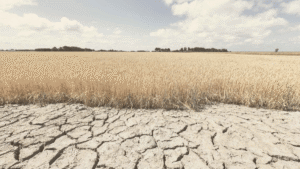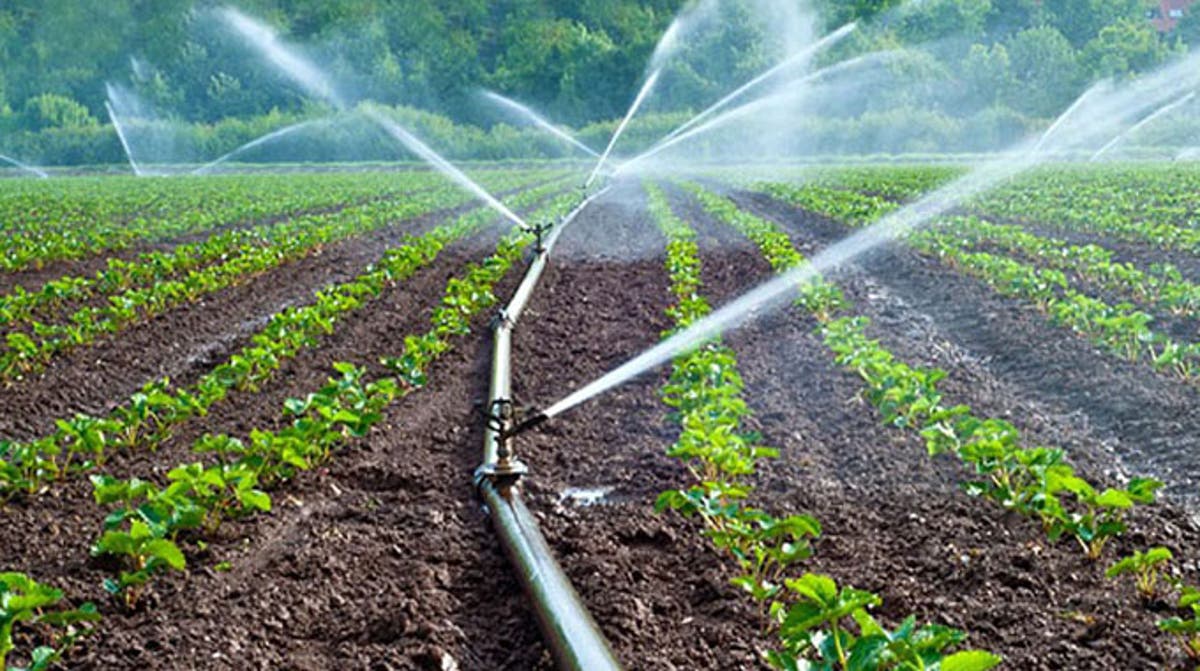Climate change is a major global issue that is having a significant impact on many aspects of human life, including agriculture. The world’s food supply is being threatened by changing weather patterns, rising temperatures, and increased occurrences of extreme weather events such as droughts, heat waves, and floods.
These changes are affecting the productivity and profitability of agricultural operations, and pose a major challenge to ensuring food security for the growing global population. The purpose of this report is to examine the impact of climate change on agriculture and discuss the challenges and opportunities facing the agricultural sector in a changing climate.
Impact of Climate Change on Agriculture
Climate change is affecting agriculture in a number of ways, including:
- Changes in precipitation patterns: Changes in precipitation patterns, including droughts and floods, are affecting the availability of water for irrigation and crop growth. Droughts can reduce crop yields and increase the risk of wildfires, while floods can damage crops and infrastructure, and increase the risk of disease and pest outbreaks.
- Rising temperatures: Rising temperatures are affecting the growth and development of crops and livestock. High temperatures can cause heat stress in animals, reducing their productivity and fertility, while also affecting crop growth and yields.
- Changes in pest and disease patterns: Changes in temperature and precipitation patterns are affecting the distribution and abundance of pests and diseases. Warmer temperatures and changing precipitation patterns can provide ideal conditions for pests and diseases to thrive, leading to increased crop losses.
- Soil degradation: Changes in precipitation patterns and rising temperatures can also affect soil health, leading to soil degradation and decreased soil fertility. Soil degradation can reduce the ability of crops to absorb water and nutrients, leading to reduced crop yields and increased erosion.
- Sea level rise: Rising sea levels are affecting coastal agriculture, causing saltwater intrusion into freshwater systems and reducing the quality and availability of agricultural land.

These impacts of climate change are affecting the productivity and profitability of agricultural operations and are threatening the world’s food supply. It is estimated that by 2050, global food production will need to increase by 60-70% to meet the demands of the growing global population.
Challenges and Opportunities in a Changing Climate
The agricultural sector is facing a number of challenges in a changing climate, including:
- Adaptation: Adapting to the impacts of climate change is a major challenge for the agricultural sector. Farmers and agricultural organizations need to find ways to adapt to changing weather patterns and rising temperatures to ensure the productivity and profitability of their operations.
- Climate-resilient crops: Developing crops that are resilient to the impacts of climate change is a major challenge and opportunity for the agricultural sector. This includes developing crops that are more resistant to pests and diseases, have higher heat tolerance, and are more drought-resistant.
- Irrigation: Irrigation is becoming increasingly important in a changing climate, as changes in precipitation patterns affect the availability of water for agriculture. Developing more efficient irrigation systems is a major challenge and opportunity for the agricultural sector.
- Sustainable practices: Implementing sustainable practices that reduce the impact of agriculture on the environment is a major challenge and opportunity in a changing climate. This includes reducing greenhouse gas emissions from agriculture, improving soil health, and reducing the use of synthetic fertilizers and pesticides.
- Education and training: Providing education and training to farmers and agricultural organizations is a major challenge and opportunity in a changing climate. This includes training on climate-resent farming practices, innovative technologies, and sustainable production methods.
Potential Solutions and Strategies

There are a number of potential solutions and strategies that can be implemented to mitigate the impacts of climate change on agriculture and ensure a sustainable food supply for the future. Some of these include:
- Climate-smart agriculture: Climate-smart agriculture is an approach to agriculture that aims to reduce greenhouse gas emissions, increase resilience to the impacts of climate change, and improve productivity. This includes practices such as conservation agriculture, agroforestry, and integrated pest management.
- Renewable energy: Increasing the use of renewable energy in agriculture can reduce greenhouse gas emissions and increase energy efficiency. This includes the use of solar, wind, and biogas energy for irrigation, heating, and cooling.
- Water management: Effective water management is essential in a changing climate, as changes in precipitation patterns affect the availability of water for agriculture. This includes water conservation and the use of efficient irrigation systems, as well as rainwater harvesting and the reuse of agricultural wastewater.
- Soil health: Improving soil health is essential for reducing the impact of climate change on agriculture. This includes reducing soil degradation, improving soil fertility, and using sustainable land use practices.
- Research and development: Investment in research and development is essential for the agricultural sector in a changing climate. This includes the development of climate-resilient crops, innovative technologies, and sustainable production methods.
Conclusion
The impact of climate change on agriculture is a major global issue that is affecting the productivity and profitability of agricultural operations, as well as the world’s food supply. The agricultural sector is facing a number of challenges in a changing climate, including the need to adapt to changing weather patterns, develop climate-resilient crops, and implement sustainable practices.
However, there are a number of potential solutions and strategies that can be implemented to mitigate the impacts of climate change on agriculture and ensure a sustainable food supply for the future.
In conclusion, it is essential that the agricultural sector takes a proactive approach to address the impacts of climate change, by investing in research and development, implementing sustainable practices, and developing resilient and sustainable food systems. Only by taking action now can we ensure a sustainable food supply for the future and protect the livelihoods of farmers and rural communities.










